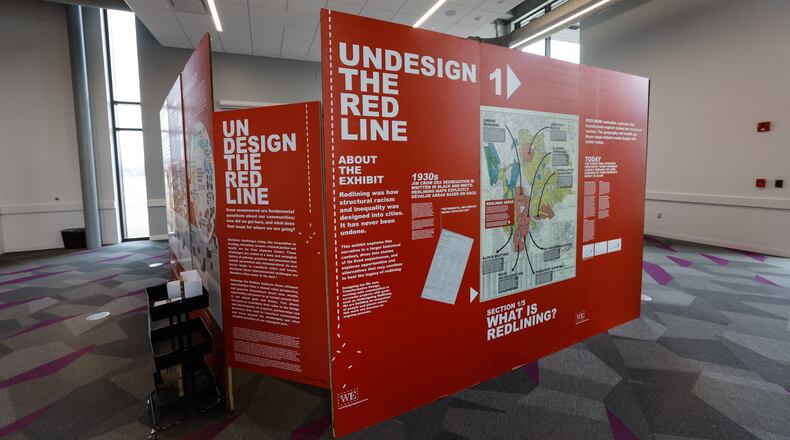Organizers hope that a wide variety of community members from Dayton and its suburbs will register to attend all or part of the events.
“I hope that we have lots of residents from Dayton and the counties come, not just people who are part of formal organizations, but ordinary citizen,” said Nancy McHugh, a University of Dayton philosophy professor and co-organizer for both events.
First, Common Good in a Divided City, the three-day conference happening the weekend of April 1 to April 3, will take a faith-based perspective and delve into racism, the church and the challenge of regional solidarity. The conference on UD’s campus will be a mix of hearing from speakers (these addresses will also be broadcast via Zoom) and dialogue among attendees.
“There is a lot of energy around the city, including at UD, to work toward new solutions to the divisions we have inherited,” said Kelly Johnson, a University of Dayton religious studies professor and co-organizer of the conference.
Second, the Imagining Community Symposium on Thursday, April 7 and Friday, April 8 at the Dayton Arcade will host over one hundred speakers and panelists, including artists, community organizers, academics, faith leaders, local business leaders and more.
Organizers of the symposium were inspired by the Undesign the Redline exhibit which is currently traveling around Dayton and will be on display during the two-day conference in the glass rotunda of the Arcade. The exhibit covers the history of racial segregation nationally and in the Dayton region and includes local maps and residents’ stories. The exhibit’s namesake, redlining, was a practice by the federal government and banks from the 1930s into the 1970s that created lasting segregation and racial inequalities in cities.
Like the exhibit, the symposium is aimed at both addressing history and seeking solutions.
“I think that we’ve been a little bit data-d out. We keep talking about the issues and the problems. We know the issues. And so now it’s like okay, so where is the will to change it? To recreate?” said Amaha Sellassie, a community organizer, sociologist at Sinclair Community College and panelist at the symposium.
Sellassie is part of a key panel at the symposium discussing redlining, unequal access to opportunities and how to shape a more equitable Dayton. Other speakers and panelists will discuss topics such as health care, home ownership, parks, voting rights, removal of indigenous Ohioans and more. The symposium will also include art, poetry, a documentary about redlining in Dayton and Springfield and time for networking.
Leslie Picca, a University of Dayton sociology professor and one of the symposium organizers, said this event will hopefully lay the groundwork for many conversations to come.
“The issues of inequity in Dayton are so pervasive and complex and so the solutions are going to need to be pervasive and complex as well. And so this isn’t going to be something that’s kind of a one and done, check the box, we can say, ‘okay, we’ve solved these issues,’” Picca said.
The Common Good in a Divided City conference will begin Friday by conferring an honorary degree onto Brother Raymond Fitz, former University of Dayton president and a scholar of Catholic social teachings. Fitz will speak about his efforts to address systemic injustices of racism and poverty in the community.
The conference will also include addresses from scholars from around the country and local responses from Dayton Commissioner Darryl Fairchild, Kateri Dillon, and Chuck Mingo and associates from LivingUndivided.
“The history of housing policy, redlining, and suburban white flight has created spaces that are racially divided, even if those who live in them now do not wish for them to be so,” said Vincent Miller, a University of Dayton religious studies professor and co-organizer. “Our churches are caught up in those same dynamics. This conference makes space for people who think that churches have something to offer to build community across those divisions to meet, hear from speakers, dialogue with each other, and build connections for future action.”
How to register
Advanced registration for both events is highly preferred. Interested community members can register for free online:
The Common Good In a Divided City: udayton.edu/artssciences/endowedchair/ferree/common-good-symposium-2022.php
Imagining Community Symposium: udayton.edu/artssciences/endowedchair/roesch/imagining-symposium.php
About the Author

